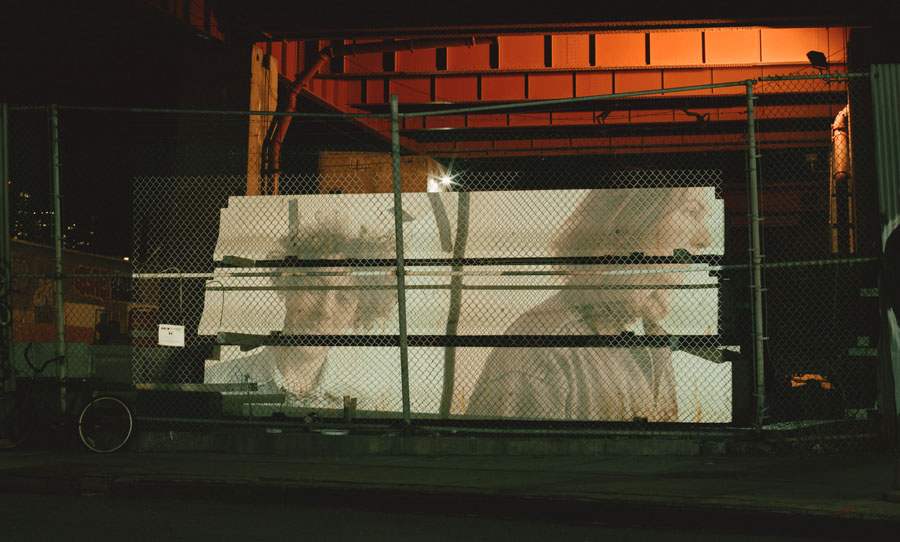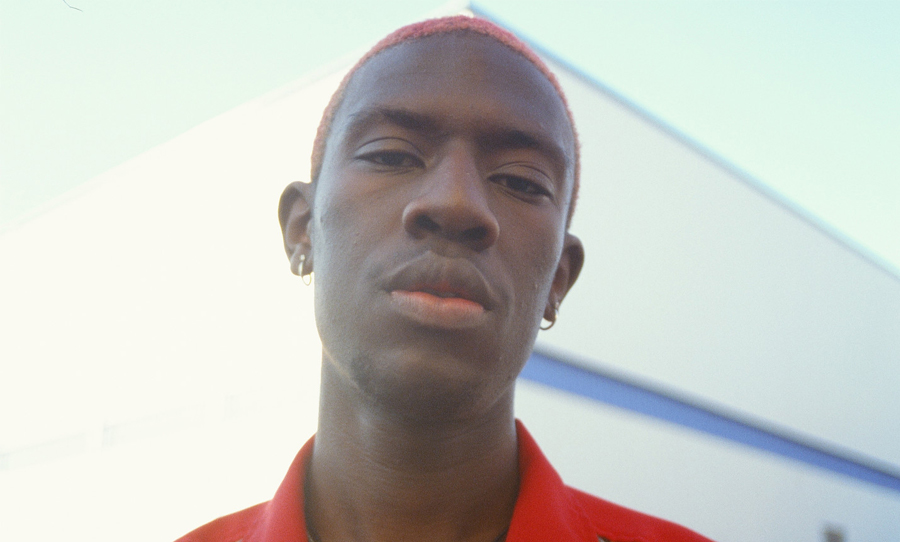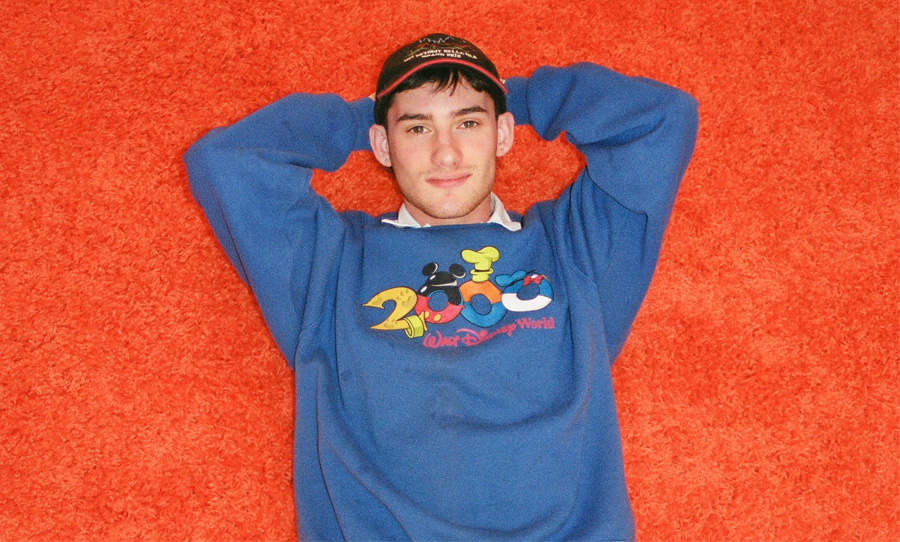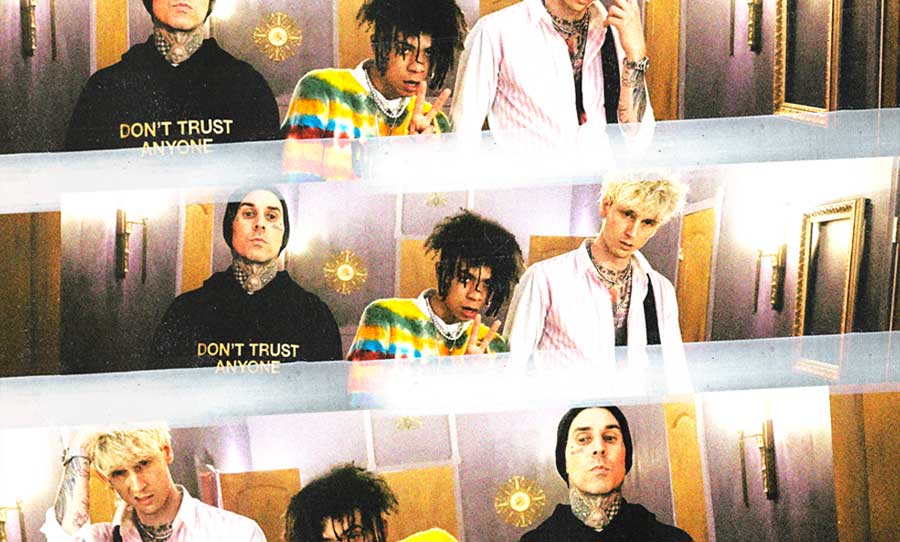Danny Miller, one half of Lewis Del Mar, eloquently guides us through the band’s much-awaited second album AUGUST, and the heavy themes which lie within.
The road that led to Lewis Del Mar’s new album AUGUST hasn’t been an easy one. After a hugely successful debut in 2016 Danny Miller and Max Harwood became embroiled in a label deal they eventually had to break free of – an expensive and stressful affair. Danny said goodbye to his father, and the pair lost their home on New York’s iconic Rockaway Beach. But diamonds are made under pressure, and that rough patch has coalesced into the band’s most compelling and honest work.
As Danny’s life and the world at large blew into a whirlwind, he explains, he’d notice parallels everywhere. For instance his notorious Independence Day parties at Rockaway Beach became burdened by guilt as he became disillusioned with the America around him. Personal microcosms became signifiers of the larger societal issues that form the backbone of AUGUST.
The album is beautiful and messy, a catalogue of turbulent times told through gorgeous, intricate songwriting. And through it all, whether it’s stunning moments of ethereal prose or sunny, surf-inspired guitar melodies, Lewis Del Mar shine through as perfectly genuine. Much like Danny when we had the pleasure of speaking to him.
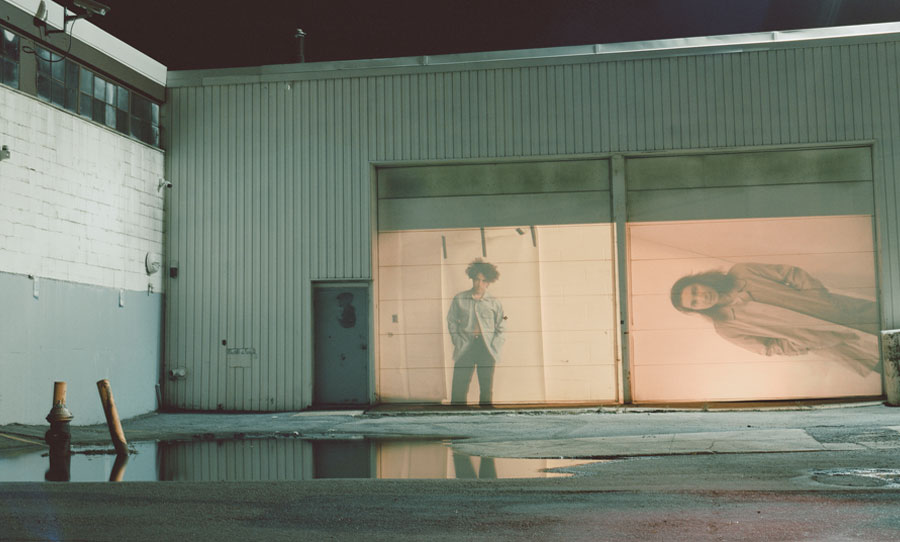
HAPPY: You wrote this statement for Rosalie, and you mentioned these Rockaway Beach 4th of July celebrations turning sour. I latched onto that because a similar movement’s been happening in Australia. What do you think it is about the last five years or so that’s brought a lot of these feelings to light for people around the world?
DANNY: I mean, in the last five years particular, I think that where the civil rights movement is in America in relation to Black people specifically has a lot to do with the killing of Trayvon Martin, when all that began. It’s a heightened focus on recording the police by the citizens of our country. And I think that as a result of some heightened vigilance in that sector, it’s led to some long overdue conversations. And I think that, hand in hand with that, there has been yet another wave of reinvestigating the history of this country, the United States, and the ways and the principles that were used to found it. Every time, the door of understanding gets opened just a little bit wider.
The 4th of July, what people take issue with specifically is that this is the day on which we declared independence, and in that it says that all men will be treated equally. So it’s taking issue with the declaration and the constitution itself, and the rights that it promised to all citizens of America – that only a small part of the population receives.
HAPPY: Interesting time to be writing music.
DANNY: Of course! To be doing anything.
HAPPY: If we’re talking about the classic role of the artist, to interpret the world around them, do you think it’s possible to write in a time like this and not be influenced – even in some minor way?
DANNY: I don’t know if it’s possible or not, I’m certainly influenced by it. I think that art is by nature a magnifying glass on society, so if you’re making art that doesn’t somehow partake in that dialogue, I don’t know if you’re really making art. You know?
HAPPY: I would say there are artists who are at least trying to live outside that dialogue. Not that I agree you should.
DANNY: It’s easy to look at that dialogue as something that’s about civil liberties or social justice, but I think that dialogue is also about loneliness and mental illness and the things we do to cope with those things. And I think there’s a lot of artists that traffic in that dialogue, which is maybe a more universal part of our experience growing up as a part of this generation.
HAPPY: Does keeping everything within a microcosm of your experience – your relationships, your city – is that the way you’ve found most useful at interpreting the wider picture?
DANNY: I think I see very large scale issues play out every day in the anecdotes of my life, but I think that I chose this time because it really resonated with a journey that I went through personally. You know, during that chapter in my life, part of the issue was that I was very self-absorbed, so I think looking at my surroundings and the struggles that I was facing at that time… it seemed the most therapeutic way for me to process it. So therefore, that’s what the album ended up being. Often, as much as we architect a narrative into the work that we do, its source always comes from a very therapeutic place. The purpose of music in my life is often to provide relief. I hope that answers the question.
HAPPY: It does. I’ve just realised we dived right into some serious shit right off the bat…
DANNY: Not at all! I write about very serious shit [laughs]. I just write about what’s happening and the way I see things. But I think, as you’ve already commented, on Rosalie and several of the other songs on the album, they’re seeing some of my personal issues through a larger lens.
HAPPY: That three-part sequence on the album [Fever, Rosalie, Border], you’ve kind of released it in a reverse order. On the album Fever comes first, but it’s going to be the last one people hear, was there a reason behind that?
DANNY: Yeah, I think that transition from Prologue into Fever is a really beautiful moment that I want people to experience when they put Side A of the album on. It maybe also more closely mirrors the journey and the point at which we’re at, which is that the album reaches over the hill to a point of clarity and I think that we’re operating from that point of clarity… so it made sense to work backwards.
HAPPY: So you’re no longer at that space on Rockaway Beach?
DANNY: No we’re not there currently.
HAPPY: But that’s where you recorded a lot of the album?
DANNY: Yeah we recorded a lot of it there, and I think I sort of touched on this in what I said about the album, but we went through a lot of transitions. I went back to working a job, we walked a lot of business hurdles in getting out of our label deal and changing our team, and as a result we’ve lost a fair amount of money. Yeah, I went back to working a restaurant for a bit, and we lost that place actually, we had no money left. It’s a temporary thing while we figure out what’s after this COVID chapter.
HAPPY: Sorry to hear that, that’s a bummer.
DANNY: Oh no, it’s totally just how it goes.
HAPPY: That space did sound quite special, a recording space that’s on the beach and where everything’s centralised. How did that location influence the record?
DANNY: The first album, a lot of the album was recorded in it, and on this album, a lot of it was written in it. So I think its proximity to the ocean is probably its biggest contribution. Rosalie, TV, the prologue, several tracks that didn’t make the album, there’s a lot of songs that were written directly after I was walking next to the ocean and clearing my head. Probably seven or eight cuts on the album.
HAPPY: One of you, in some press around the album, talked about how viewing life as a straight line can be limiting. Was that you?
DANNY: Yeah, I think I said that about Do You Need Me.
HAPPY: Is it limiting to look as a song as if it’s about a certain time in your life, then?
HAPPY: What makes something interesting is specificity, so I don’t think one part of making music, or making anything, is realising that not everything you make has to be everything. I’d say that you can create endless interest with specificity, so I don’t think it would limit a song’s potential to be a great work of art.
AUGUST is out now via FADER Label / Caroline Australia. Stream or purchase your copy here.
